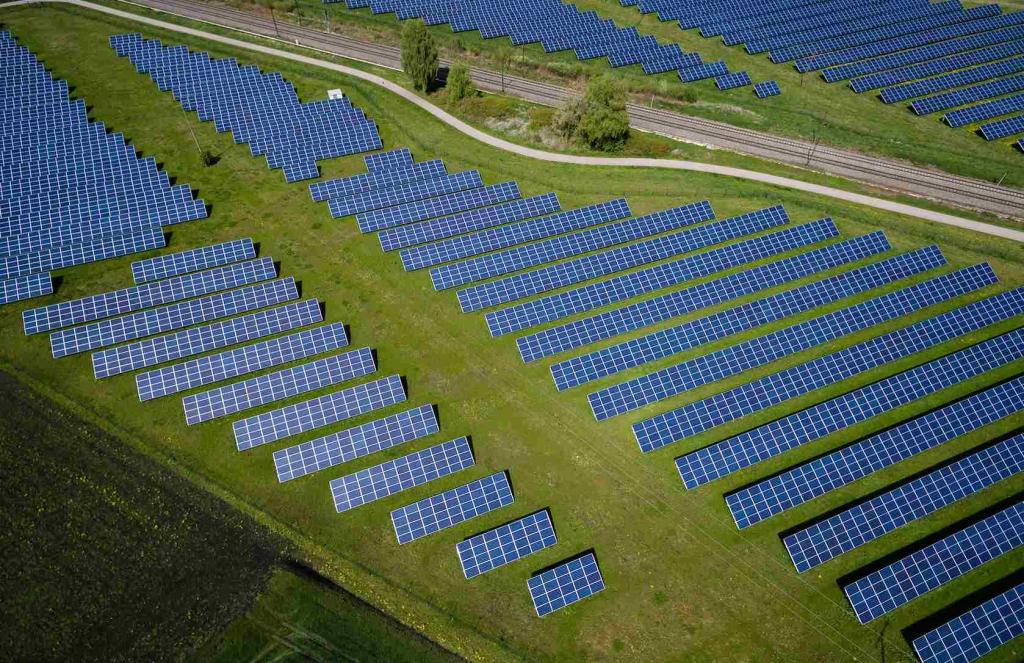Thessaloniki gets ready for its metro launch in November
The underground rapid transit lines have been under construction for almost two decades due to various project delays
 TheMayor.EU logo
TheMayor.EU logo 
Roads have a lot of real-estate that can be used to make energy, Source: Andreas Gocklhorn / Unsplash
Regional authorities have identified 260 roadside areas suitable for solar farms; so they are looking for partners
On Tuesday, authorities in the German Federal State of Baden-Württemberg announced that roadside lots could be turned into photovoltaic plants very soon. State authorities have identified around 260 locations that can be developed by energy providers.
These roadside properties include land, but also noise walls, small areas around access roads and road embankments. The estimated output of these locations, if they were to all be developed, would be around 122 gigawatt-hours - equivalent to the annual consumption of 35,000 three-person households.
Authorities have decided to create a registry for all the available spaces and are now extending a hand to the energy sector, as well as an offer of partnership to install renewable energy.
According to a statement by the government, there has been a growing interest among energy providers to use these types of spaces for green energy. Since February 2022, the companies have submitted over 600 inquiries about different locations.
However, only 26 have received a positive answer from authorities. This is because most of the locations were not public property. Yet, this has prompted a response and now, with the help of road maintenance authorities, the state has compiled a list with all 260 available locations.
Most are in the district of Stuttgart (85), followed by the administrative districts of Karlsruhe (74), Tübingen (71) and Freiburg (26). Now interested parties can approach the Road Construction Administration
The offer is aimed at municipalities, municipal utility companies, citizen cooperatives, project developers and private individuals alike. Minister of Transport Winfried Hermann was quoted in an official statement explaining that the goal is to get as many operators as possible to take part in the green energy transition.

The underground rapid transit lines have been under construction for almost two decades due to various project delays

Now you can get your wine in Talence by paying directly in Bitcoin

That’s because the state has to spend money on updating the railway infrastructure rather than subsidizing the cost of the popular pass

Rethinking renewable energy sources for the urban landscape

The examples, compiled by Beyond Fossil Fuels, can inform and inspire communities and entrepreneurs that still feel trepidation at the prospect of energy transition

Now you can get your wine in Talence by paying directly in Bitcoin

The 10th European Conference on Sustainable Cities and Towns (ESCT) sets the stage for stronger cooperation between the EU, national and local level to fast track Europe's transition to climate neutrality.

At least, that’s the promise made by the mayor of Paris, Anne Hidalgo

The underground rapid transit lines have been under construction for almost two decades due to various project delays

At least, that’s the promise made by the mayor of Paris, Anne Hidalgo

Hostal de Pinós is located in the geographical centre of the autonomous region

Despite its church-y name, the district has long been known as the hangout spot for the artsy crowds

Urban dwellers across the EU are having a say in making their surroundings friendlier to people and the environment.

Forests in the EU can help green the European construction industry and bolster a continent-wide push for architectural improvements.

Apply by 10 November and do your part for the transformation of European public spaces

An interview with the Mayor of a Polish city that seeks to reinvent itself

An interview with the newly elected ICLEI President and Mayor of Malmö

A conversation with the Mayor of Lisbon about the spirit and dimensions of innovation present in the Portuguese capital














